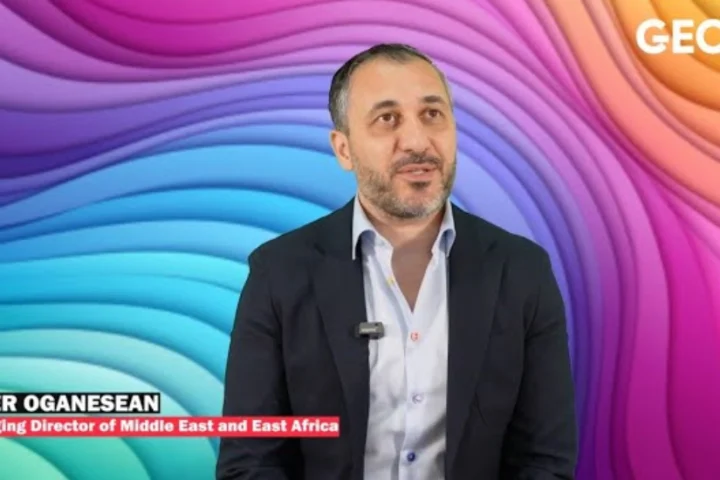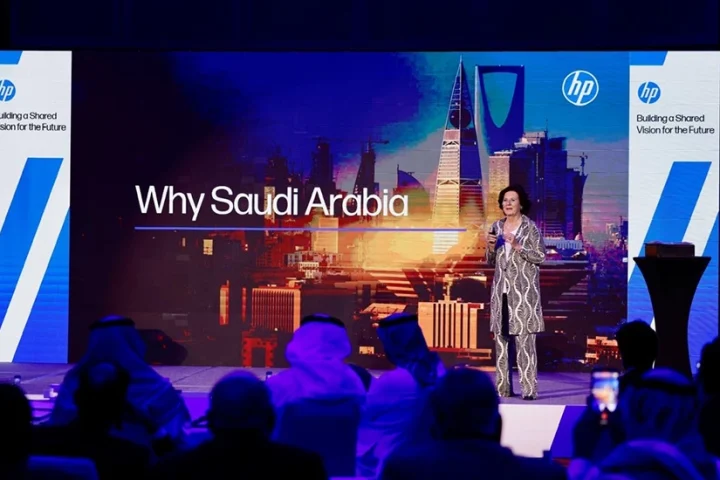HP’s MD of MEA, Ertug Ayik on AI, productivity, and redefining employee experience.
How can organizations move beyond a one-size-fits-all approach to truly personalize the employee experience?
To truly personalize work, organizations must move away from the traditional systems, rather static, and embrace flexibility, richness, and AI-powered customization. At HP, we understand that today’s workforce demands more than uniformity, they seek autonomy, flexibility, and purpose. In fact, our 2024 Work Relationship Index (WRI) reveals that 87% of knowledge workers globally are willing to trade a portion of their salary for a more personalized and fulfilling work experience (healthy relationship with their work). This signals a profound shift in expectations, where one size fits all no longer has a place.
To meet these evolving demands, HP has pioneered a portfolio of next-generation AI-powered PCs designed to adapt to individual workflows and preferences. Take the HP EliteBook X Flip G1i, which combines AI-powered Intel Core Ultra processors with adaptive collaboration features such as Poly Camera Pro’s intelligent framing and spotlighting, allowing each user to engage in their own unique way.
Meanwhile, our HP Smart Sense uses Al to automatically optimize the user’s laptop battery, fan and processor, making informed, real-time adjustments to boost productivity, conserve power and even enhance the lifespan of the device.
What are the biggest obstacles companies face in adapting to workers’ evolving expectations?
Many organizations are still grappling with cultural inertia, struggling to keep pace with a workforce whose expectations have fundamentally changed. Employees today are not just seeking better tools—they’re seeking better experiences. The key lies in balancing operational priorities with human-centric experiences.
While technology adoption has accelerated, only 28% of knowledge workers report having a healthy relationship with work, according to HP’s 2024 Work Relationship Index. At the same time, two-thirds of employees and leaders are actively seeking an experience at work that aligns with their own needs, preferences, and working styles. This includes the ability to customize their workspace, access technologies that match their missions , and their way of working.
The pressure is on employers to not just provide tools, but to deliver fulfillment. When people feel empowered to work in a way that suits them, they are more engaged, creative, and flexible. Countries that reported higher Work Relationship Index scores attributed the gains to improvements in leadership and fulfillment. On the other hand, where scores declined, inadequate tools, skills that are not used or valorised, and uninspiring workspaces, were the pain points.
HP is helping organizations evolve into people-first workplaces, where purpose, personalization, and performance combine. Our AI PCs like the HP EliteBook X and HP OmniBook Ultra Flip deliver both power and personalization through features like presence detection, onlooker alerts, and adaptive dimming, all of which respond to real-world user behavior and privacy needs.
What does the future of work culture and leadership for HP mean?
We believe that empathy is the foundation of a resilient, future-forward workplace. Leadership must also evolve. The importance of inclusive, emotionally intelligent leadership in this era is reinforced by the WRI’s results that female business leaders are more confident than their male counterparts in human abilities like empathy, communication, and emotional intelligence.
As examples, from HP Dynamic Voice Leveling, which optimizes audio according to your surroundings, to Poly DirectorAI, which guarantees that all voices are heard in hybrid meetings, HP incorporates human-first design into all of its products.
What are the most urgent changes needed?
The message from employees is clear: they want more than productivity—they want purpose, autonomy, and psychological safety. And they’re willing to make sacrifices to get it. HP’s 2024 Work Relationship Index reveals that 73% of knowledge workers who use AI say it makes their job easier, reinforcing the idea that the right technology doesn’t just streamline tasks—it transforms how people feel about their work.
We believe that the most immediate change required is to redesign the work experience through intelligent, empathetic technology.
HP, as an IT leader, is doing this by embedding AI into our entire ecosystem. The OmniBook Ultra Flip, for example, offers 20-hour battery life, 9 MP AI cameras, and Poly Audio, empowering creators, freelancers, and mobile professionals to work where they feel most engaged.
Furthermore, the HP Workforce Experience Platform (WXP), the company’s first AI-powered digital experience platform, helps CIOs unlock workforce potential and transform employees into growth drivers. It delivers actionable insights to IT leaders by analyzing device usage and recommending tailored support and upgrades.
How can AI be used not just to improve productivity, but to enhance employees’ emotional connection to their work?
We believe that AI has the power to free employees from the routine and help them reconnect with what they love about their jobs. When AI takes on repetitive tasks, it gives people time for creativity, problem-solving, and collaboration, the things that make work meaningful, thereby increasing the emotional connection to work.
HP’s WRI shows that 68% of knowledge workers say AI opens up new opportunities to enjoy work, and 60% believe it improves work-life balance. These statistics reflect a transformative opportunity: to design AI not around systems, but around people.
HP’s AI PCs such as the EliteBook X and OmniBook Ultra Flip are equipped with personalized workflows, adaptive displays, and AI-powered assistants that support focus, creativity, and collaboration. With HP Smart Sense, devices adjust power and performance based on usage, helping workers stay in flow without disruptions.
What are some best practices for using AI to create a more tailored work experience?
Best practices begin with embedding choice, autonomy, and security into the design of every AI-driven experience.
HP’s approach is threefold:
- Context-aware personalization: HP Smart Sense optimizes performance based on actual usage patterns.
- Inclusive Collaboration: Features like Poly Camera Pro and Dynamic Voice Leveling support hybrid teams with intelligent video and audio adjustments, ensuring equitable experiences for all participants.
- Proactive Support: With the Workforce Experience Platform, IT can anticipate issues before they arise, reducing downtime and frustration.
How can organizations ensure that AI tools align with the personal needs and preferences of individual employees?
It begins with listening to your workforce and choosing tools that are adaptable to individual working styles. Organizations must select AI platforms that offer user-driven customization—where employees can control how and when AI supports them.
HP’s approach embeds this flexibility. Our PCs enable multi-modal interaction, whether through voice, pen, or touch, and our Workforce Experience Platform suggests tech upgrades and support based on concrete employee usage. HP EliteBook Ultra and HP OmniBook X, are equipped with features like Microsoft Copilot , presence awareness, and AI-based content generation, all of which empower users to adapt their workflow to their own rhythm, and not the other way around.
Security must also align with personal needs, ensuring trust. That’s why features like onlooker detection and self-healing security are built into HP Wolf Security—offering both personalization and protection.
What does a “personalized work experience” looks like across different demographics or generations?
True personalization meets people where they are, regardless of generation, and adapts with them as their needs evolve. For Gen Z, personalization might mean flexible setups, fast connectivity, and intuitive tech that works seamlessly across apps. For millennials, it’s about purpose-driven work and collaboration tools that foster creativity. Gen X might value performance reliability, privacy, and hybrid support, while Boomers may prioritize ease of use and ergonomic design.
HP’s AI solutions cater to all of these needs—whether it’s our 20-hour battery life OmniBook Ultra Flip for digital nomads, or adaptive camera and audio tech in Poly tools for cross-generational collaboration.
What are the latest innovations from HP, designed to transform the future of work?
HP is continuously innovating to shape a more intuitive, flexible, and empowering work future, our latest innovations include HP EliteBook X Flip G1i. This PC gets a versatile x360 design with AI collaboration tools, built-in security, and eco-conscious materials—ideal for mobile leaders.
Our Consumer Premium HP OmniBook Ultra Flip benefist of a 3K OLED display and of 20-hour battery life combined with AI audio and visual tools for freelancers and creatives. HP Smart Sense dynamically optimizes performance, thermal power, and battery life in real time thanks to AI.
At last, Poly DirectorAI and Lens are cutting-edge audio and video collaboration tools that adapt to users’ environments and habits. The objective of HP is to lead the Future of Work, ensuring the fulfilment of its employees and supporting the growth of companies.

























